We learned how eight gaming studios from different countries deal with crunches.
- Transfer
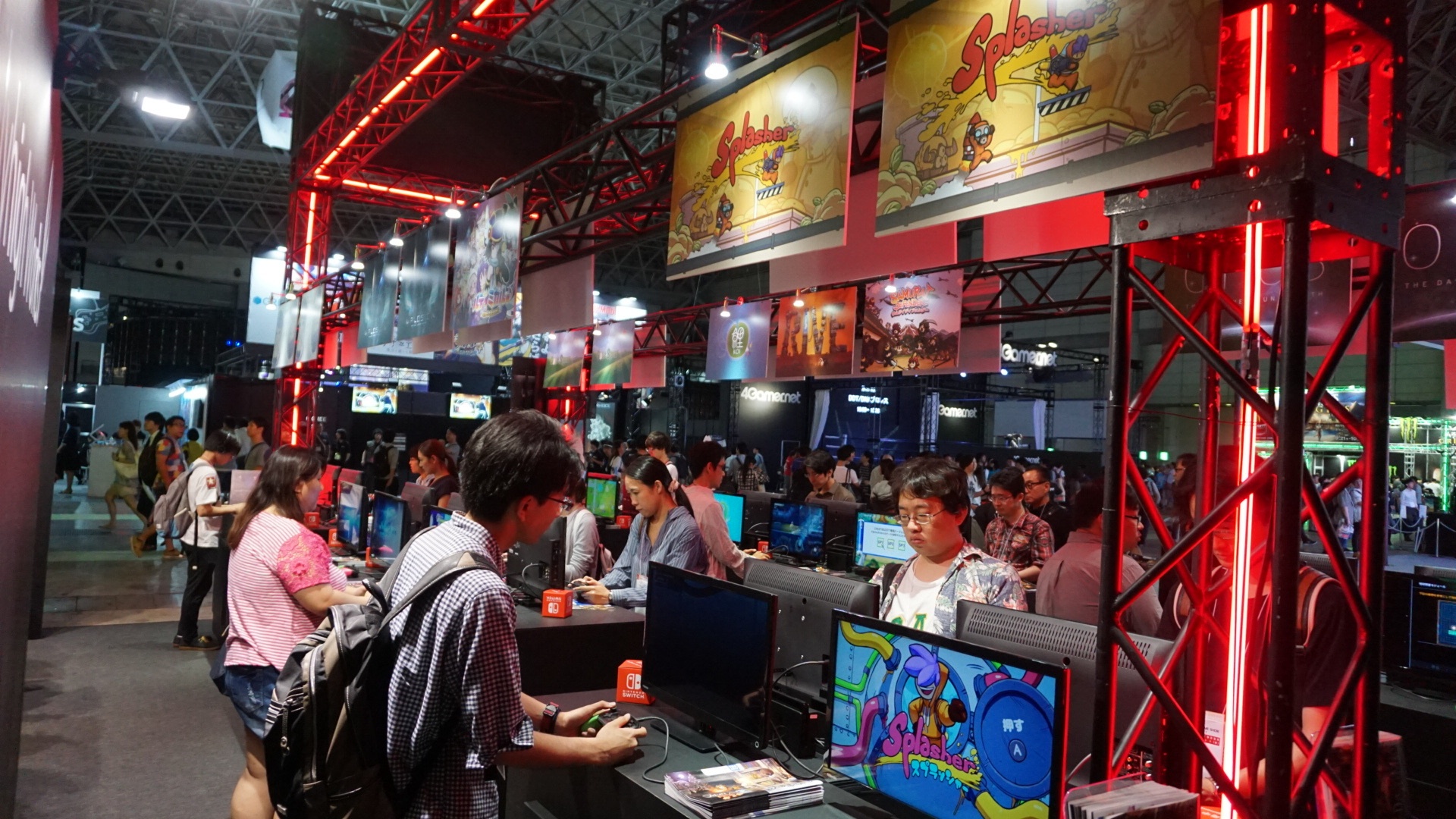
Gamescom and Tokyo Game Show, as well as E3 , are the most important gaming events for hundreds of thousands of developers, fans and industry professionals working in Europe and Japan. Both exhibitions attract many different people, from indie developers from Sweden to huge studios from Osaka with thousands of employees.
As in other major gaming conferences, very little attention was paid here to topics that publishers would not like to raise. Questions about problems with employees may lead to the termination of the interview, but it is vital to continue what we did at E3 and continue to reveal the details of the "crunch culture" and other unfair practices adopted in the gaming industry.
Layoffs, closing studios, crunches - in the US it all seems like a normal routine. Companies like Rockstar make employees work sixty hours a week , and Telltale fires most of the staff without warning and severance pay . Therefore, it is very important to pay attention to unfair working conditions so that this situation can be corrected.
For this article, we interviewed eight gaming industry workers — Japanese studios with thousands of employees, an Italian team of 50 people, and a Swedish studio of two people. Many people spoke very openly about the problems that the crunches bring to the development of games, others did not want to answer at all. We communicated with Japanese developers through translators.
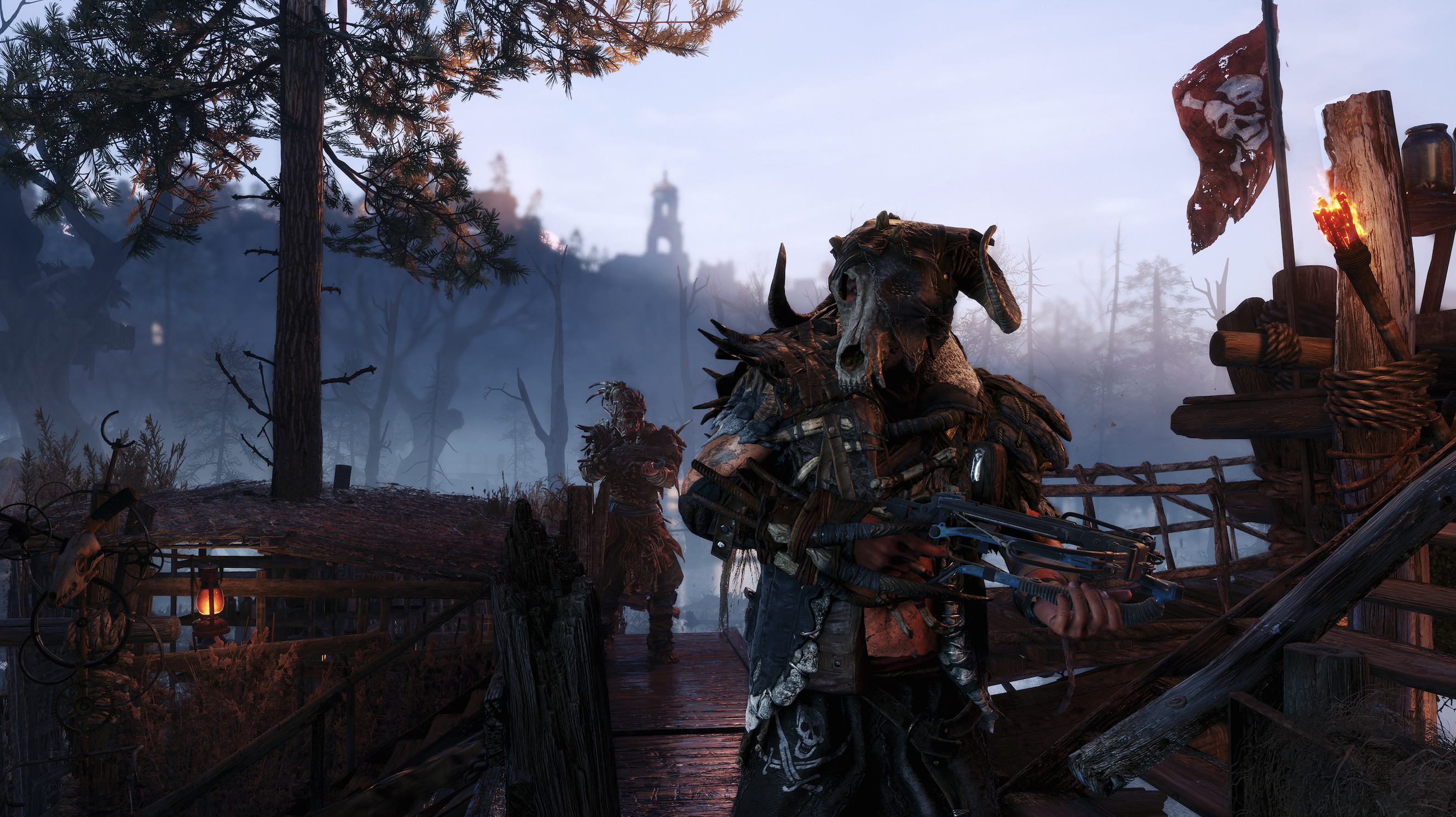
Metro Exodus, image courtesy of Deep Silver
Jon Bloch, executive producer of Metro Exodus
One of the issues that we raise at this exhibition is labor practices in the industry. We study how studios cope with cranks, achieve a healthy balance between work and life. Does 4A Games make any effort to fight crunching and ensure fair treatment of employees?
Block: It’s hard to live in a place like the island of Malta and not have a good sense of balance between life and work. We work very hard, but we have no crunch at all. In terms of work schedule, we strive to develop self-discipline. People can work additionally to improve the result of their work, but this should be their personal choice. We do not schedule mandatory overtime hours, but they do happen.
When you lay down the processing schedule or order people to work overtime, then prepare yourself for failure. If you are working on a schedule in the early stages, reach a general agreement on it and bring in a sense of personal responsibility, then you find yourself in a much better situation.
Did you, as a team leader, have had occasions when you had to say: “Yes, I know that we all like our work, but this can wait until Monday”?
Block:When people who are passionately committed to the project work in your studio, this is easier said than done. This can happen when a common event is organized with us, and I have to ask people to leave the tables, relax and spend time together. But when you really care about your work and you are completely immersed in it, you do not want to stop - you only want to do it better.
For example, our creative director, when he saw smoke coming from a train in a Red Dead Redemption 2 trailer, said, “I need to go back and make our smoke better!” And this is quite a healthy, competitive atmosphere when you are at the forefront of technology and graphics quality .
This is one of those things that looks like an endless rabbit hole, because in fact such a work can never be completed. Remember the saying about works of art that are never really completed? This is how we all feel.

Dragon Quest 11, image courtesy of Square Enix
Hokuto Okamoto (producer) and Takeshi Utikava (game director) Dragon Quest XI
I wanted to find out how you, Japanese developers, deal with crunches - you work a long time, donate weekends and other aspects of your life to meet the deadline. Not sure if the term “crunch” is common in Japan, but have you ever come across it? Have you tried to find some ways to avoid it?
[All laugh]
Okamoto: Oh yes, we run into him.
I am absolutely clearly aware that the final product will not fully correspond to what was intended. Therefore, in the course of work, I tell my team: “Here are the most important aspects that we cannot do without,” and I leave everything else at the mercy of employees, allowing them to make decisions on their own.
In addition, from the point of view of the development of one of the important parts of the work was the creation of a plug-in for the Unreal Engine. We did not alter any parts of the engine for the game, because otherwise we would have to change other parts. As a result, we had a lot of bugs, and we had no idea where they came from. This process took a whole month, sometimes more. We stayed on the stable version so that the work did not turn into torment.
Uchikawa: At some times we even worked for 12 hours. Ordinary employees went home, but for us the main work was to check the game, and it took a lot of time.
You said that you sent your team home so that employees did not work as long as you did, but did you do something concrete to help them maintain a healthy balance between work and life?
Okamoto: That's exactly what our company works, this is Square Enix's point of view.
Utikawa:If we talk from the point of view of the developer, then most of the team members joined us as fans of the game. They liked this series, they played it, and therefore their motivation was very strong. In addition, they are accustomed to working on the series, because many of them have created different parts of it for many years. Therefore, in the team there is a strong desire to create the best possible game for the allotted time. That is, yes, of course, we worked a lot, but this desire helped us restrain each other.
Okamoto:We had overtime, all the same deadline - this is the deadline, and the work needs to be done. In our case (and this situation can be unique) everything that we create in the development process was transferred to Jurisan for verification. If he said: “No, this will not work,” then we had to go back and redo the work, and this was our most serious deadline.
I think it's great that some of the team members joined Square Enix as fans of the game, but did you worry that any of them would recycle to burnout? That they will invest a lot of extra hours, which may affect their health or even reduce the quality of work?
Okamoto: I do not understand how additional efforts can reduce quality?
It seems that I quite clearly explained that there is a limit to which a person can work, and if he processes too much, the quality of the results will suffer. I tried to ask - do you do something so that nobody could manipulate their passion? Even if not intentionally?
Uchikawa: Square Enix would never do anything like that, even though we sometimes say: “If you like the game, do you really like this quality?”
Okamoto: You know, in big companies this happens, they are not perfect. But as for our company, we are doing everything possible not to be like them.
Can you tell us more about what you are doing?
Okamoto:It depends on the conditions in which teams encounter crunches. For example, designers have such situations in the early stages of development, but there are periods when they have no work at all. We are trying to ensure that departments that do not have a large load, take extra time to rest.
Do you think crunches are a serious problem in Japan?
Uchikawa: There are processing problems in Japan. We realize that this is a serious problem.
Do you think it is possible to develop games without crunches?
Uchikawa: There are ways to improve the development of games using technology. for example, using AI to fix bugs.
But I think that over time our situation has improved, especially since the creation of Dragon Quest 1. They said that then people stayed all night to work on the game. I was younger and it seemed cool to me. But when I actually got into the industry and looked at it from a business point of view, I realized that many factors should be taken into account. All the checks that need to be carried out, and all the things that each individual developer must do outside of work, in his personal life. I believe that when creating a game it is very important to create the correct schedule, think carefully about everything, and make sure that people can continue their lives outside of work.
I do not think that now there is a need to stay at work all night. But personally, when I absolutely need to improve the game, I will do just that.
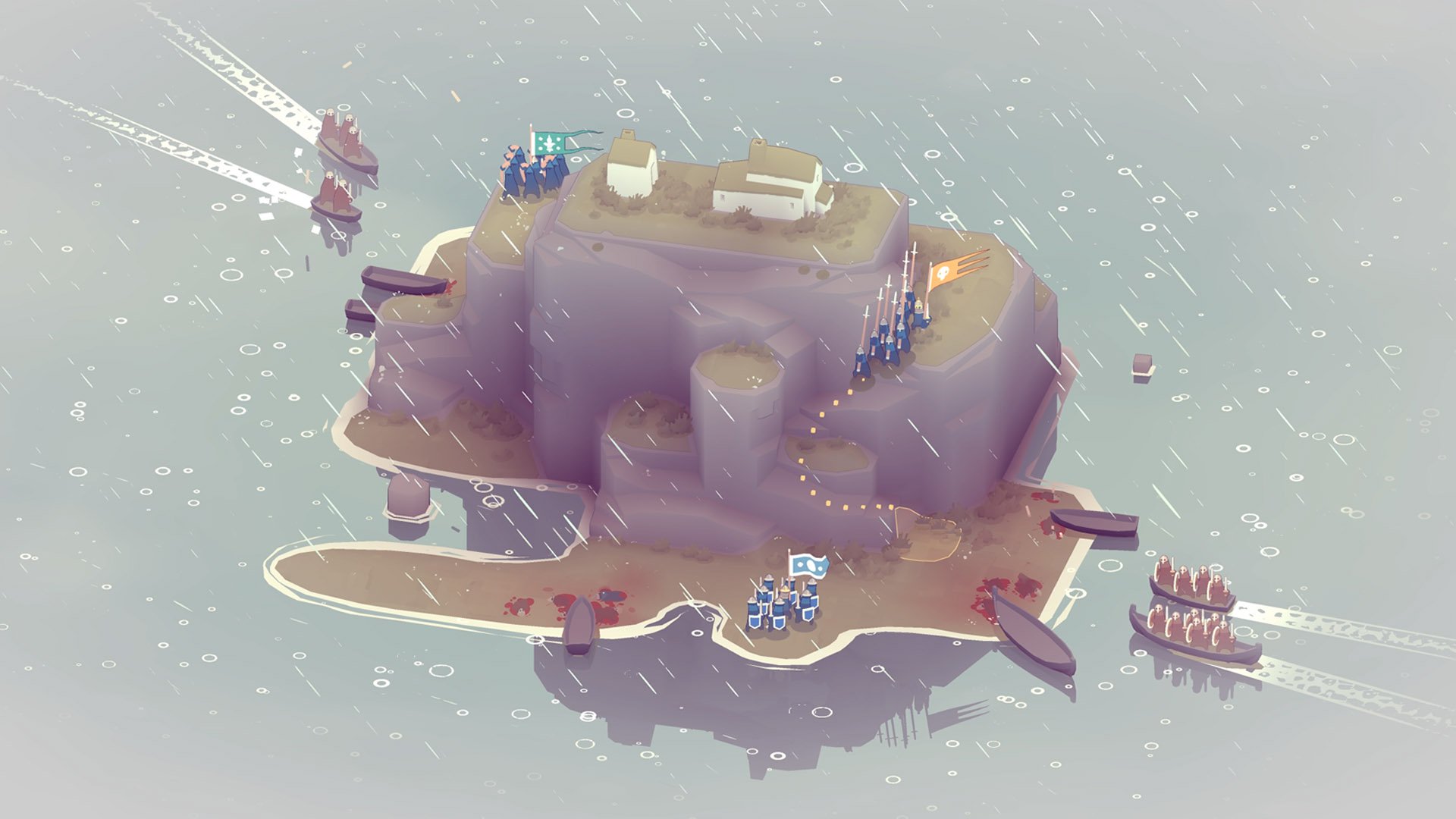
Bad North, image courtesy of Raw Fury
Oscar Stolberg, designer Bad North
At the exhibition, we ask different developers, from small indie teams to large companies, questions about fighters and other working conditions in the industry. Do you have a big team?
Stolberg: Only Richard Meredith and I are the backbone of the team, we started a company. Sound deal with contractors.
How do you indie team track your work and avoid crunch? Are you trying to do something to avoid it?
Stolberg: When the work overloads us, the crunch begins. This is sad. I used to work at Ubisoft, and when we had crunches, I could blame someone higher in the hierarchy. But now it is more difficult to do it, it takes a lot of work to create a game, and sometimes planning turns out to be erroneous or takes longer than expected.
At short intervals it can even be fun to work intensively for a couple of weeks. You can work out the attitude "so let's do it." We had such a period in the spring when we planned to release the first version on consoles and we did not have time to do anything else for many evenings and weekends.
Do you somehow try to avoid such situations? Can you give any advice, looking at them today?
Stolberg: It is difficult. I don't know, just need more time. The problem is that you can allocate more time, but this may mean that development will slow down. If you postpone the deadline for a long time, then you will not be so focused. Perhaps we can improve planning, I’m not very good at it.
We still need to sleep properly and play sports from time to time. There are aspects in which you can compromise, but you should not include your health in a compromise. Such sacrifices are easier to do when you are in good condition and stay healthy.
Is it possible to create a dream game without a crunch?
Stolberg: Yes, of course, it is possible. I do not quite understand how, but it is definitely possible.
Obviously, the more money you have, the longer you can work, but by accumulating experience, you can better anticipate problems and create the right schedules.
There are differences in how I work now and what I did in Ubisoft. When I worked there, if I looked tired, then my leaders told me to go home. In such companies you can work a lot, but there is always someone to whom you can transfer responsibility. After all, failure is not your fault, but someone upstairs. But now, when there is only us, there is nobody to blame. If I do not do my part of the work, then no one will do it. In a project like Bad North , the crunch doesn’t take so much, because we took care of it.
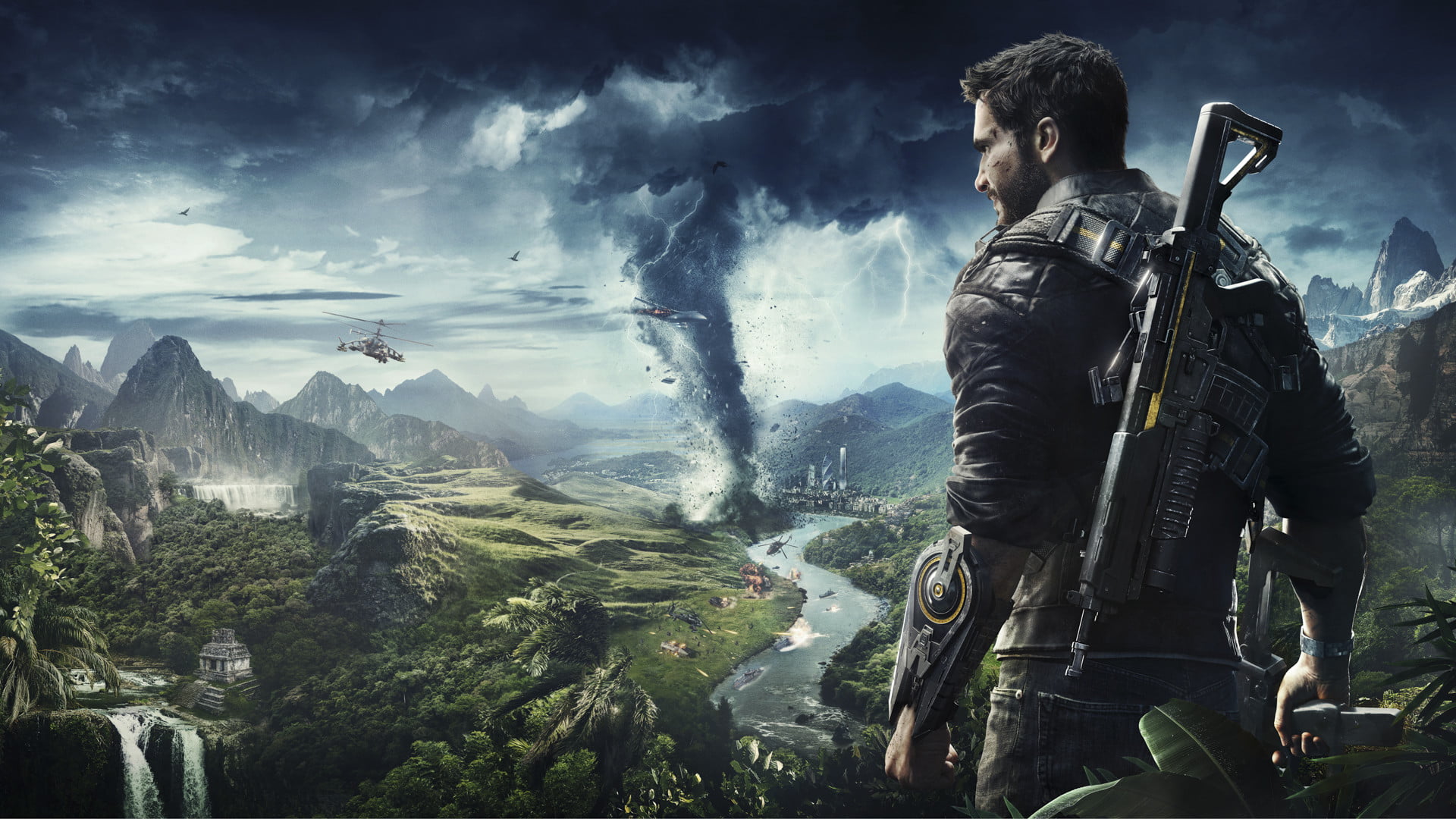
Just Cause 4, image courtesy of Square Enix
Francesco Antolini (game director) and Maria Saint-Martin (systems designer) of the game Just Cause 4
How did Swedish studio Avalanche, whose management is located in New York, deal with crunches in the past?
Antolini: Our company is very attentive to the relationship between work and life. This is a characteristic of Swedish culture in general and Avalanche in particular, therefore we do not practice crutches. When a person enters the industry, he hears "urban legends" about what companies consider crunches to be normal, so he tries to avoid them.
Saint-Martin: The industry is still relatively small and we communicate with each other, so we know which of the companies do not take into account the interests of employees when they are crunching.
Is this “word of mouth” or something else?
St. Martin:Well, we don't talk about it all the time. We all have friends working in other studios, and when we meet, we ask about business. Sometimes kranchi are mentioned, but this is not the main topic of conversation. As I said, the industry as a whole, not only in Europe or Sweden, is very small, so when you “beat the pots” with one person, rumors spread.

Soulcalibur VI, image courtesy of Bandai Namco
Motohiro Okubo, producer of Soulcalibur VI
Are you doing something to handle the crunch during the development process?
Fortunately, even as a Japanese company, we are not confronted with crunchy on Soulcalibur VI . In Japan, there is the problem of constant processing. Working conditions are improving, but still remain a big problem.
Do you do something concrete to deal with it in a team?
First, we, of course, “expel” the employees home and do not allow them to linger. [Laughs]
I am a producer, and my task is to keep track of it and make sure that employees don’t process. My other duty is to give clear instructions so that my team does not worry about where to go and what to do. I strive to make the schedule and instructions understandable, so that people can work without thinking that they need to remain on processing.
The problem here is that developers constantly want to experiment and try new things. Of course, most often it is good, but I try to make it so that no one worries about whether something needs to be done. Employees can speak frankly with me about everything so that they do not think that they have to recycle.
Is it always a matter of limiting experiments so that developers do not rework, especially when passion drives them?
Yes it is. Most of our team members joined the project because they really wanted to create Soulcalibur. Many of them believe that they must work hard, so in this respect I trust them, and in many ways I delegate to them the ability to make decisions. The whole point is that while they are not processed, otherwise from overtime, they can burn out and lose the meaning of work.
Such relationships and trust allow you to maintain team motivation, but the challenge is that they do not work too much; This is a unique problem that I have to contend with.
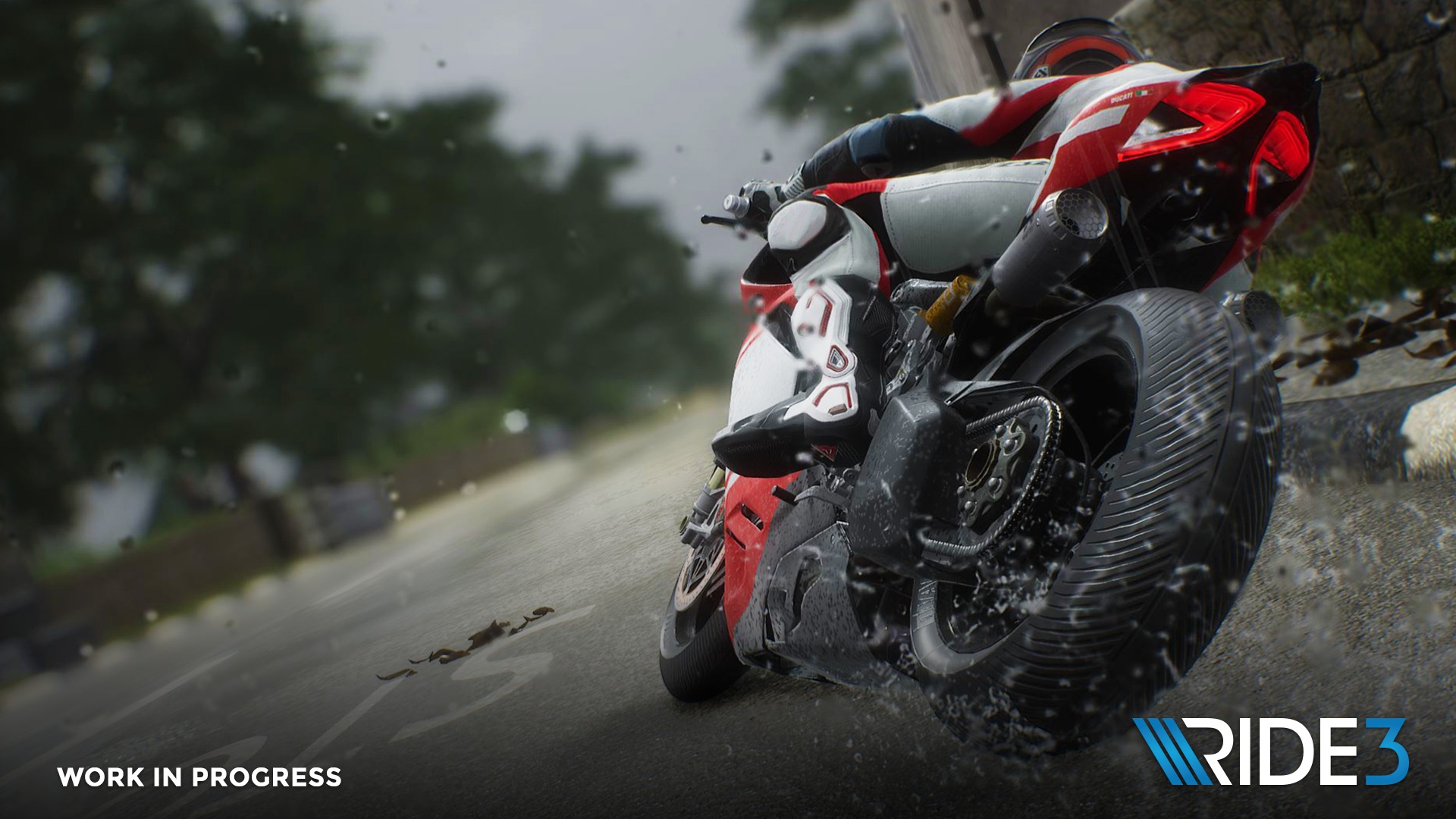
Ride 3, image courtesy of Milestone
Luca Gafasso, game designer Ride 3
I would like to know if you come across a crunch in your Italian studio?
Gafasso: Of course, they arise, especially when problems arise before the release of the game. But since we specialize in racing simulation, even if there were problems in the production process, we began to optimize the workflow. Therefore, if we develop something good, we can reuse it in other games, the genre allows it.
But even so, when something breaks after release or something needs to be fixed in multiplayer, our community wants everything to be fixed right away. Therefore, when problems arise, developers must perform a lot of overtime work.
What about what is not related to the optimization you mentioned? Are there any other programs in Milestone that help in maintaining a balance between work and life?
Gafasso: Nothing concrete, but there are no special crunches in my studio. The company sees when the developers are working too hard, and use solutions to avoid burnout, for example, some Mondays are done on weekends.
Sometimes the problem is in a developer who seeks to give more away. We have to tell them not to work at home at three in the morning. It often happens that people connect from home and the company does not know that they work. Milestone does not need this, the company wants the work schedule to remain normal.
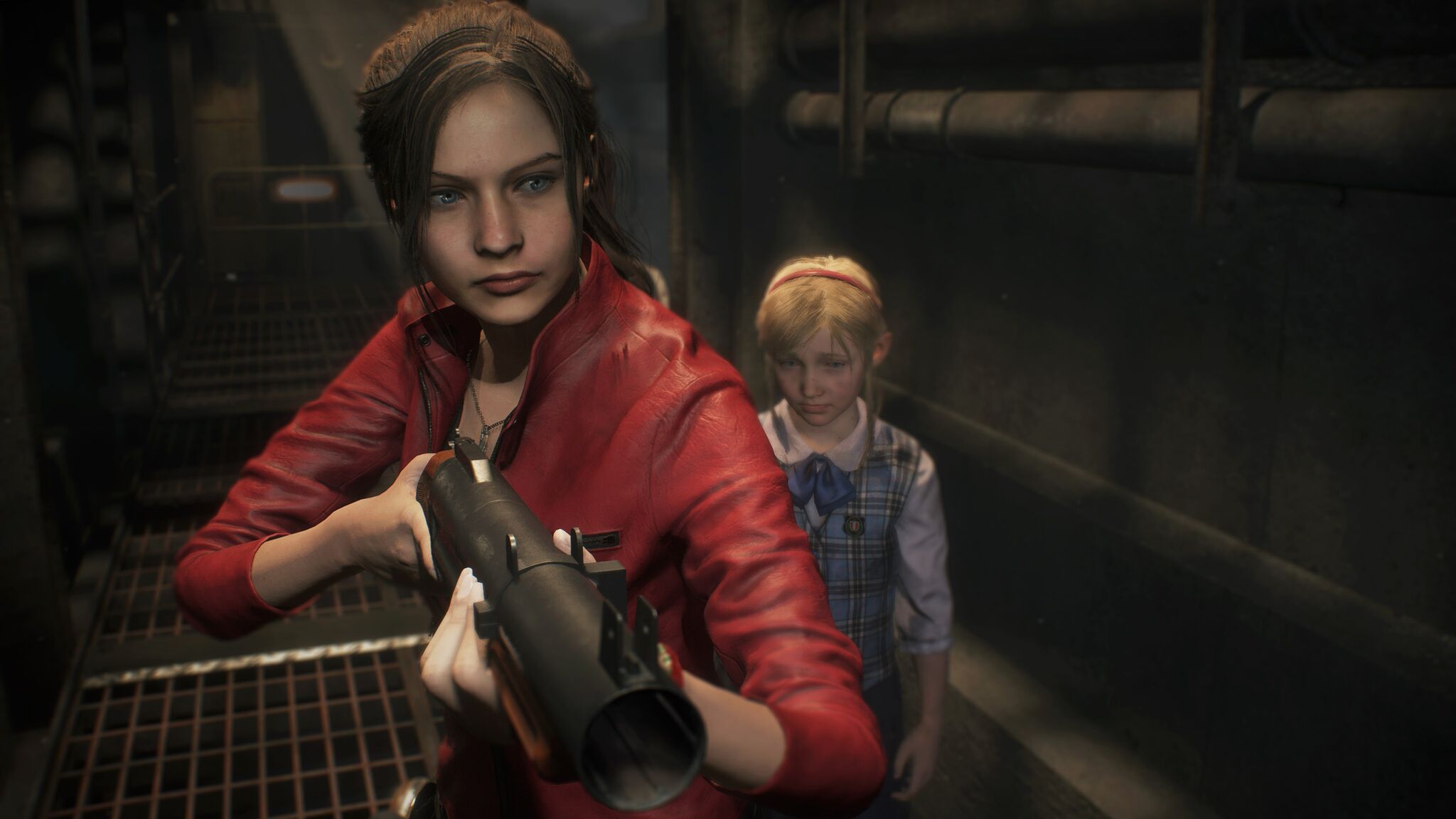
Resident Evil 2, image courtesy of Capcom
Kazunori Kadoi (game director) and Tsuyoshi Kanda (producer) Resident Evil 2
At this exhibition, we ask various studios questions about how they deal with cranes: working in long shifts, in the evenings and on weekends, in time for the deadline. Sometimes people sacrifice their lives for work. I am sure you came across this during the development process. Have you somehow tried to fight it?
Kanda : We strive to follow the company's overtime instructions, but sometimes we have to work on weekends or overtime, and so on. Producers task is effective resource management. At such moments, we have to demand more from people, but we cannot force them to do the impossible. The question is actually in effective resource management.
Kadoi:This does not mean that at such moments we do not leave the office, or what else they say in horror stories. But sometimes you have to increase the load and work hard. In addition, I think that in the past games were developed in much shorter cycles, and this last spurt at the end was a real nightmare. Today, the games are created three to four years, so one big crunch at the end is divided into several small phases of the project. We distribute them, which, in my opinion, is less harmful than it was before.
But even if they are stretched, does the company still expect crunches?
Kadoi:I think so, but the situation can be improved. For example, the engine that we use for Resident Evil is designed with fast iterations and trial and error method, which reduces the number of problems in the process, because we are not limited to only one solution. Today, we can quickly perform iterations and make mistakes in the early stages of development. If this were not, then you would have to redo all the work again, which would lead to unexpected crunches.
You mentioned the corporate instructions for rework. Can you tell us more about them?
Kanda: These instructions are not specific to the company, in each country there is a limit on the number of working hours. We take into account and try to adhere to these rules.
The larger the company becomes, the easier it is to notice such violations. There are more employees, a large HR department, whose mission is to protect health and maintain a balance between work and life. It is impossible to break these rules, because it would be very noticeable.
Not to mention the fact that we still would not want to break them. There is a good system that allows us to control. If necessary, we can work hard, but maintain health.
(PR representative of the company: Do you have any other questions regarding RE2?)
Yes, but I have not finished with this topic yet.
(PR representative of the company: Our employees are here to talk about the game, so let's get back to it.)

Ace Combat 7, image courtesy of Bandai Namco
Katsutoki Kono, Producer Ace Combat 7: Skies Unknown
Were there any cases where your team had to participate in the development of Ace Combat? Did you do something to cope with them in your team?
Kono: In August and during the autumn holidays in Japan, the weekend season. Many people from my team went on vacation. That is, they seem to have decided to spend their annual holidays with high quality. I just sent an important letter to a team member, but he did not see him because he was in Hawaii. [Laughs]
Not sure if you use the concept of “work-life balance”, but apart from holidays, are you trying to do something so that work does not interfere with the personal life of employees?
Kono:In fact, Bandai Namco does a lot to balance life and work. For example, once a month the company forces me to leave work and do something that is not connected with it. Therefore, even if I am very busy, I spend one day doing everything I want. Sometimes I watch a movie or go to the theater to unwind. This output is given to each team member.
In addition, there is another difference from the old days: now no one is late to work in the evenings. When work time ends, the light just turns off, and everyone should disperse.
You have not only one day off per month, right?
Kono: Of course, this is not counting the usual weekend and the like.
Do you think that crunches are a problem in the gaming industry in Japan? Outside of Bandai Namco?
Kono: The Japanese government has a policy of reform of working conditions. Therefore, it seems that other developers are also changing. It seems that now the industry is focused on making the small time that we have as efficient as possible.
And I do not think that the reason for the emergence of a new policy was the game industry. Historically, the people of Japan had the principle of "never give up." I think that as a country as a whole, we simply realized that in order to do something, you need to be healthy.
Do you think this policy really has an effect?
In my personal opinion, if you do not rest and do not spend interesting time outside of work, then you start doing something boring. If you want to do something interesting, then you need to take a break and refresh yourself.
However, I believe that people seeking to make interesting products always think about how to improve. These burning people work 24 hours a day, but not in the sense that we are discussing.
All interviews were edited for clarity and brevity.
